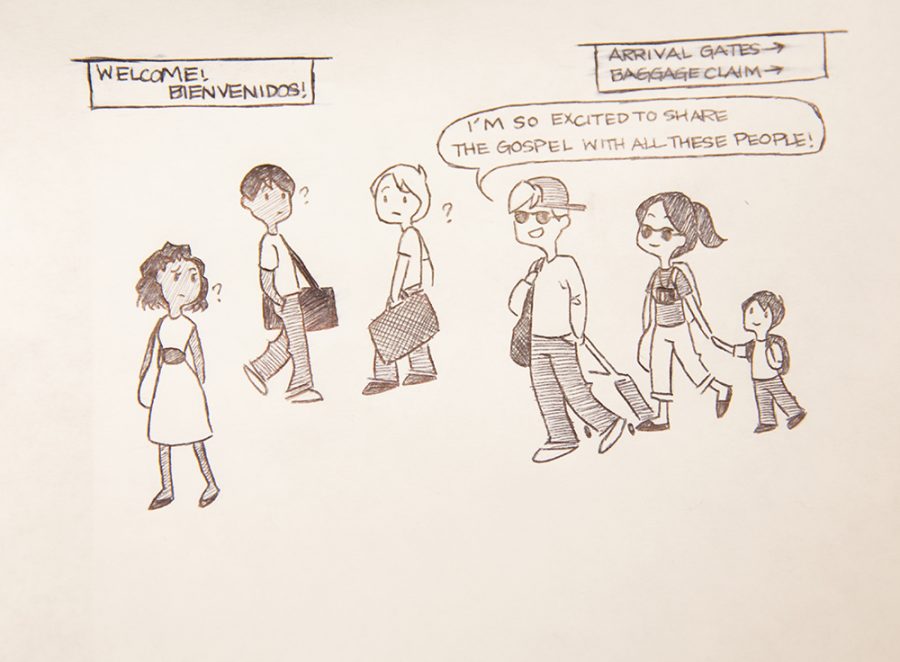Missions can harm more than help
Remember to focus on how to best serve the needs of others when deployed on missions, instead of on your experience.
March 11, 2015
With Missions Conference coming up, students put aside academics and reflect upon Christ’s call to make disciples of all nations. The Student Missionary Union makes the entire conference possible with professors and volunteers all assuring that the conference can come together cohesively and create a positive –– and hopefully lifelong –– impression on the students about the need to spread the Gospel. There is an issue with this impression on students though, a problem that runs deep even in the biggest and most God-abiding churches, something I call “altruism tourism.”
SHORT-TERM MISSIONS
In many Christian circles, including Biola, there exists a false belief that all mission work is good mission work, no matter what work is done. There lies an assumption that if the work is done in the name of Christ must be inherently good. This is certainly not the case. I speak specifically of short-term missions. The current model of short-term missions seems to harm the very people it intends to help — short-term missions seem to instead bolster the confidence and patch the guilt of Christians who observe the disparate differences and poverty in other countries.
Paul gives the example of good missionary work throughout the Gospel, demonstrating that as a missionary one must dedicate their entire life as a servant of Christ, devoting themselves selflessly to the Lord. I do not claim that short-term missions are inherently bad, but rather that the majority of them seem to take American ideals of helping and application of those ideals to other cultures without a second thought. For example, a study in 2006 took surveys of short-term mission workers and the Hondurans they worked with after Hurricane Mitch and the results proved quite telling: the volunteers got more out of their volunteering than the people they helped.
INCREDIBLY FLAWED
The people of Honduras reported they would have rather have had the money spent on the team’s flight expenses to put towards paying their own workers to repair the damage done by the hurricane, which in turn would have helped their hurting economy. Meanwhile, the short-term missions crew members reported a 50 percent increase in their own charity activities and reported that their prayer life had expanded. Who really benefited here?
Can you imagine if the situation reversed? What if a group of Italians came in after Hurricane Katrina, most barely speaking English, but insisting that they could do a better job of doing hurricane clean up than we could? As Americans, we would be irate and proclaiming that we can help ourselves just fine, thank you very much. While the intentions of short-term missions remain noble, the way the missions are typically carried out is incredibly flawed and often pursued by those who feel guilty that they live in luxury while others suffer.
INVESTIGATE
This should not motivate missions; missions are meant to be carried out by those who have seen a country’s need for Christ, not for materials and services. Next time you think of participating in a mission, investigate the group and how they function and investigate your own heart. Is this mission being carried out for people who need the message of Christ or so you can put up a Facebook profile picture to show everyone else how helpful you are?







